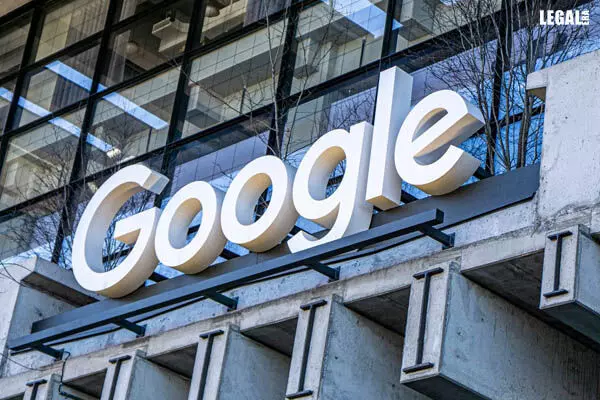- Home
- News
- Articles+
- Aerospace
- Agriculture
- Alternate Dispute Resolution
- Banking and Finance
- Bankruptcy
- Book Review
- Bribery & Corruption
- Commercial Litigation
- Competition Law
- Conference Reports
- Consumer Products
- Contract
- Corporate Governance
- Corporate Law
- Covid-19
- Cryptocurrency
- Cybersecurity
- Data Protection
- Defence
- Digital Economy
- E-commerce
- Employment Law
- Energy and Natural Resources
- Entertainment and Sports Law
- Environmental Law
- FDI
- Food and Beverage
- Health Care
- IBC Diaries
- Insurance Law
- Intellectual Property
- International Law
- Know the Law
- Labour Laws
- Litigation
- Litigation Funding
- Manufacturing
- Mergers & Acquisitions
- NFTs
- Privacy
- Private Equity
- Project Finance
- Real Estate
- Risk and Compliance
- Technology Media and Telecom
- Tributes
- Zoom In
- Take On Board
- In Focus
- Law & Policy and Regulation
- IP & Tech Era
- Viewpoint
- Arbitration & Mediation
- Tax
- Student Corner
- AI
- ESG
- Gaming
- Inclusion & Diversity
- Law Firms
- In-House
- Rankings
- E-Magazine
- Legal Era TV
- Events
- News
- Articles
- Aerospace
- Agriculture
- Alternate Dispute Resolution
- Banking and Finance
- Bankruptcy
- Book Review
- Bribery & Corruption
- Commercial Litigation
- Competition Law
- Conference Reports
- Consumer Products
- Contract
- Corporate Governance
- Corporate Law
- Covid-19
- Cryptocurrency
- Cybersecurity
- Data Protection
- Defence
- Digital Economy
- E-commerce
- Employment Law
- Energy and Natural Resources
- Entertainment and Sports Law
- Environmental Law
- FDI
- Food and Beverage
- Health Care
- IBC Diaries
- Insurance Law
- Intellectual Property
- International Law
- Know the Law
- Labour Laws
- Litigation
- Litigation Funding
- Manufacturing
- Mergers & Acquisitions
- NFTs
- Privacy
- Private Equity
- Project Finance
- Real Estate
- Risk and Compliance
- Technology Media and Telecom
- Tributes
- Zoom In
- Take On Board
- In Focus
- Law & Policy and Regulation
- IP & Tech Era
- Viewpoint
- Arbitration & Mediation
- Tax
- Student Corner
- AI
- ESG
- Gaming
- Inclusion & Diversity
- Law Firms
- In-House
- Rankings
- E-Magazine
- Legal Era TV
- Events
US Court Sets Deadline For Justice Department To Propose Penalties For Illegal Search Monopoly By Google

US Court Sets Deadline For Justice Department To Propose Penalties For Illegal Search Monopoly By Google
Earlier, the judge had branded the search engine platform as a ruthless monopolist
The US District Court – District of Columbia has stated that the Department of Justice (DoJ) has time till the end of the year to outline how Google should be punished for illegally monopolizing the Internet search market. By next spring, it must present its case for imposing the penalties.
During the first court hearing in August, District Judge Amit Mehta branded Google as a ruthless monopolist in a landmark ruling. His present judgment triggered the need for another phase of the legal process.
It was to determine how the search engine platform should be penalized for years of misconduct and forced to make other changes to prevent potential future abuses by the dominant search engine that's the foundation of its Internet empire.
The DoJ attorneys were unable to reach a consensus on how the timeframe for the penalty phase should unfold, prompting Judge Mehta to state that he hoped for a decision on the punishment before next year’s Labor Day.
If the judge’s timeline works out, Google's antitrust penalties would come nearly five years after the DoJ filed the lawsuit that led to a 10-week trial. This is like the Microsoft timeline in the late 1990s when the regulators targeted it for misconduct in the personal computer market.
Meanwhile, the Justice Department has not yet indicated how severely Google should be punished. The likely targets are the long-running deals that it lined up with Apple, Samsung, and other tech companies to make its search engine the default option on smartphones and web browsers.
In return for the guaranteed search traffic, Google has been paying its partners over $25 billion annually, with most of it going to Apple for the prized position on the iPhone.
The DoJ could force Google to surrender parts of its business, including the Chrome web browser and Android software, which power most of the world's smartphones.
In the recent hearing, the lawyers of the Justice Department said they needed time for a comprehensive proposal that would also consider how Google deployed artificial intelligence (AI) in its search results and how that technology could upend the market.
On the other hand, Google's lawyers hoped that the Justice Department proposed a realistic list of penalties addressing the issues in the ruling rather than submitting extreme measures that amounted to ‘political grandstanding’.
The judge gave the DoJ and Google until 13 September to file a proposed timeline that includes the Justice Department disclosing its proposed punishment before 2025.



